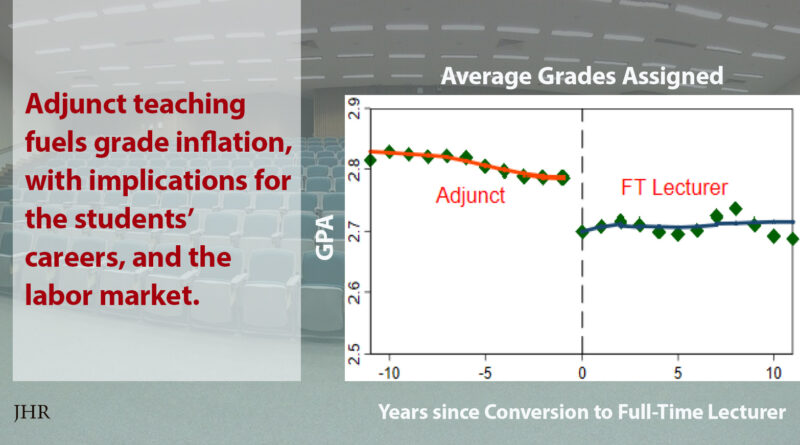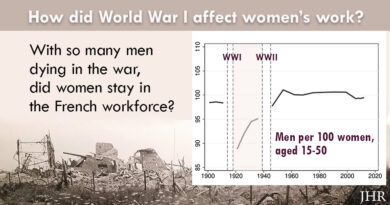Adjunct Teaching Fuels Grade Inflation and Distorts Student Choices
Since the mid-1970s, higher education has increasingly relied on part-time, adjunct faculty. By 2015, 40% of classroom instructors were hired on a part-time basis, comprising both the largest and the fastest growing employment category in the academic labor force. How does this heavy reliance on part-time employees affect the quality of higher education? In a recent JHR article, Kelly Chen, Zeynep Hansen, and Scott Lowe shed light on this question by examining instructor grading behavior and its impact on student subsequent curriculum choices.
In particular, the team focused on a unique policy adopted by a midsized, four-year public university in the U.S. that created full-time lecturer positions from an existing pool of part-time instructors. By comparing the average grades issued to otherwise identical students before and after a part-time instructor is converted to a full-time lecturer, they find that the part-time status is associated with a 0.2–0.3 grade point increase in the average GPA awarded relative to full-time employment, with no discernible differences in student learning outcomes
That said, all else equal, a contractual status change of the instructor from part- to full-time would deflate the average grades assigned by nearly a plus or minus on a four-point grading scale (for example, the difference between a D+ and C–). There is also evidence suggesting that these differential grading standards are linked to the job insecurity felt by part-time instructors.
How much, then, should we be concerned with the adjunct grading leniency? Chen: “While it does not appear to harm student learning, the inflated grades have created a strong incentive for students to take follow-on courses in a given subject. If subsequent course-taking is an indication of student interest and future earnings, then the differential usage of adjunct teaching across disciplines would have long-term repercussions for student labor market success, as well as the skill distribution of our future labor force.”
Read the study in the Journal of Human Resources: “Why Do We Inflate Grades? The Effect of Adjunct Faculty Employment on Instructor Grading Standards,” by Kelly Chen, Zeynep Hansen, and Scott Lowe.
***
Kelly Chen is an Assistant Professor in the Department of Economics, Boise State University. Zeynep Hansen is a Professor of Economics and the Vice Provost for Academic Planning at Boise State University, and a Research Associate at the NBER. Scott Lowe is a Professor of Economics and the Associate Dean of the Graduate College at Boise State University.



